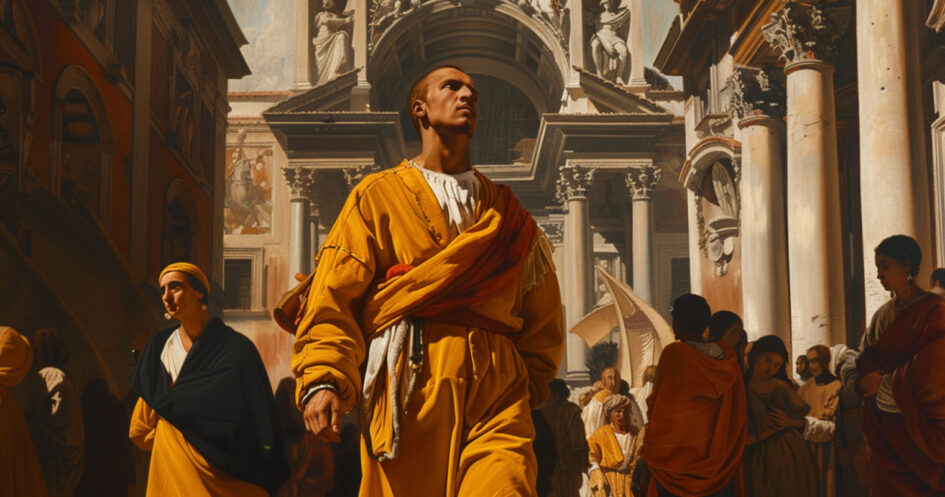The saying “Strong men create good times; good times create weak men; weak men create hard times; hard times create strong men” has recently gained traction, sparking much debate and discussion. This quote, attributed to G. Michael Hopf, a writer and survivalist, frames strength and weakness as cyclically intertwined with societal conditions. The quote is poignant, fitting, and accurate, but it can also be misconstrued depending on the definitions of strong and weak.
We recently shared a quote by Jordan Peterson stating, “If you think [strong] men are dangerous, wait til you see what weak men are capable of,” which awakened the trolls who made sure to assert that Peterson was weak because he cried a lot. Of course, ad hominem attacks on the speaker do not negate the potential truth of the message. Peterson was right as usual, but confusion about the terms “strong” and its implied corollary “weak” persisted.
Some pointed out that the emphasis on “strong men” can evoke images of fascism, as the term “strongman” is often used to describe totalitarian dictators. However, these dictators, while possessing immense political power, are often morally weak. Leaders like Hitler, for instance, riled up an entire nation in illogical fervor to start the second world war, then blamed their people when his ambitions failed, ultimately escaping the consequences of their actions through suicide. This is not the kind of strength that the quote is referring to.
Strength as Virtue
The strength we are discussing here, and likely the type Peterson refers to, is rooted in the Latin term virtus. In ancient Rome, virtus carried connotations of valor, masculinity, excellence, courage, character, and worth, perceived as masculine strengths. It was a virtue frequently attributed to Roman emperors and was personified as the deity Virtus.
The concept of virtus was later taken up by Christian thinkers and theologians, who saw it as a key element of the spiritual life and the path to salvation. The Christian virtues, which included faith, hope, and charity, were seen as essential qualities for any Christian who sought to follow in the footsteps of Christ and to live a life of holiness and righteousness. At its core, virtus is about the cultivation of moral excellence and the development of a strong and virtuous character.
In this context, strength means doing the just and righteous thing when it is difficult to do so. It doesn’t necessarily involve physical prowess or political power. Instead, it means standing up and being virtuous in times of moral decay. It is this kind of strength that creates good times, and the absence of which leads to hard times. Therefore, the quote, when understood correctly, speaks to the cyclical nature of humanity and the importance of cultivating virtuous strength in individuals and societies.
Scourge of Effeminacy
We are currently witnessing the trough of the strong men-weak men cycle as virtue has diminished throughout society, especially in men. It’s not that don’t want to do the right thing, but that men today do not want to give up the pleasures of modern life in order to do the right thing. This is what St. Thomas defines as effeminacy: a reluctance to suffer due to an attachment to pleasure (II-II q38 a1).
Fr. Ripperger summarizes the current state of culture:
Our culture is TOO EASY, TOO SIMPLISTIC, and TOO PLEASURABLE for men. Most jobs are sitting at a computer rather than hard work. Technology brings us a pleasure in its use. It is a tool but if used to regularly, becomes a problem. Nonstop use of technology by boys today is softening them, overstimulating, and makes effeminate since they have no control of their appetites.
Perfect Strength
The concept of strength, as embodied by virtus, is not just about physical prowess or political power. It is about doing what is just and righteous, even when it is difficult. And in this, there is no better example than Jesus Christ. He was not the “nice guy” Jesus often portrayed in secular culture, but the real, actual Jesus who suffered for 40 days in the desert, overturned tables, spoke hard truths, and stood up for the oppressed. His life was full of sacrifice and a willingness to do what was right, no matter the cost. Ultimately, he endured the worst suffering imaginable in order to save mankind. He did the difficult thing par excellence. This is true strength, and we can all benefit from it, but only if we join Him.
 The Libertarian Catholic
The Libertarian Catholic

